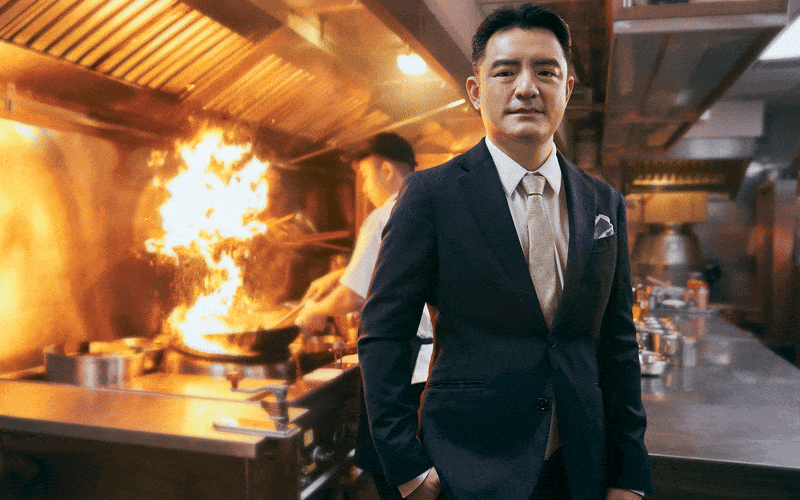“The loud environment, the rowdy atmosphere, that one uncle getting drunk somewhere and a lot of kids running around, that’s part of the whole experience,” tells Joshua Wong, executive director of Grand Imperial Group.
It’s also some of his fondest early childhood memories, growing up in a family that has always had a strong interest in food.
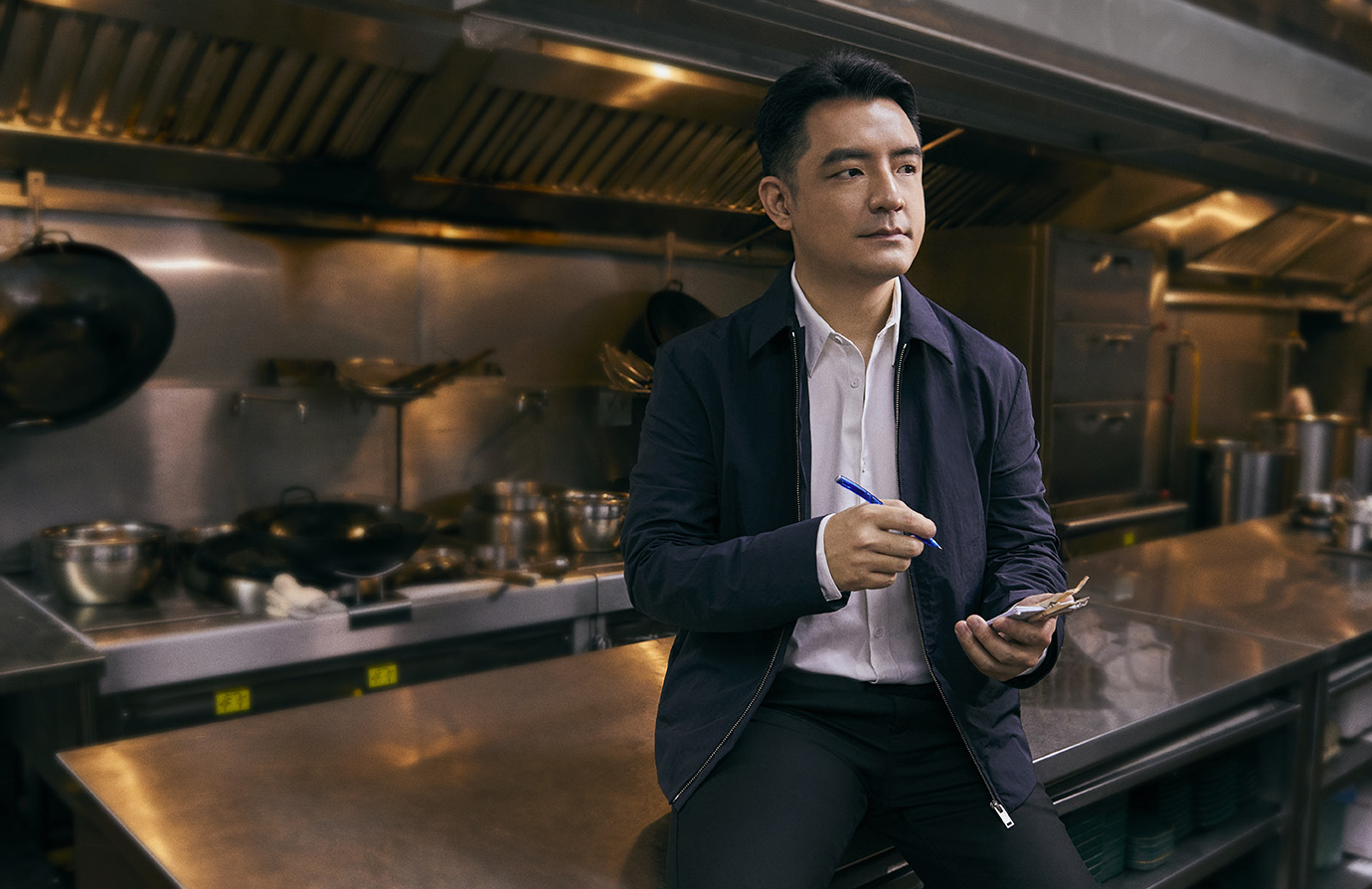
“I remember that whenever my parents had friends from overseas, visitors or anyone, we would end up in a Chinese restaurant somewhere. It was always a grand thing,” he recalls warmly. “There was always a lot of noise, food, laughter, smiles, happiness. That is what I take away from that. It was always a time to connect and celebrate.”
Food seems to be a career path equally fond of him. It has steadfastly hovered on the periphery of his own vision, first as part of his family’s secondary business, before finally careening right into his direct trajectory, in the midst of a worldwide pandemic hitting F&B businesses with the worst blow in decades, when he least expected it.
From business to the business of food
Upon returning from Melbourne where he studied business, Joshua found himself at the desk of his family’s property development business, where he oversaw the development of residential units in the upcoming areas of Shah Alam and Rawang.
While his focus was in the business of building homes, the business also runs on the side the Esquire Kitchen Group of companies that had in its repertoire the ownership of Nam Heong Chicken Rice and Castell Steak House. As his father Datuk Tony Wong grew the Esquire Kitchen business from four outlets at acquisition to 14 at its peak, Joshua was also along for the ride.
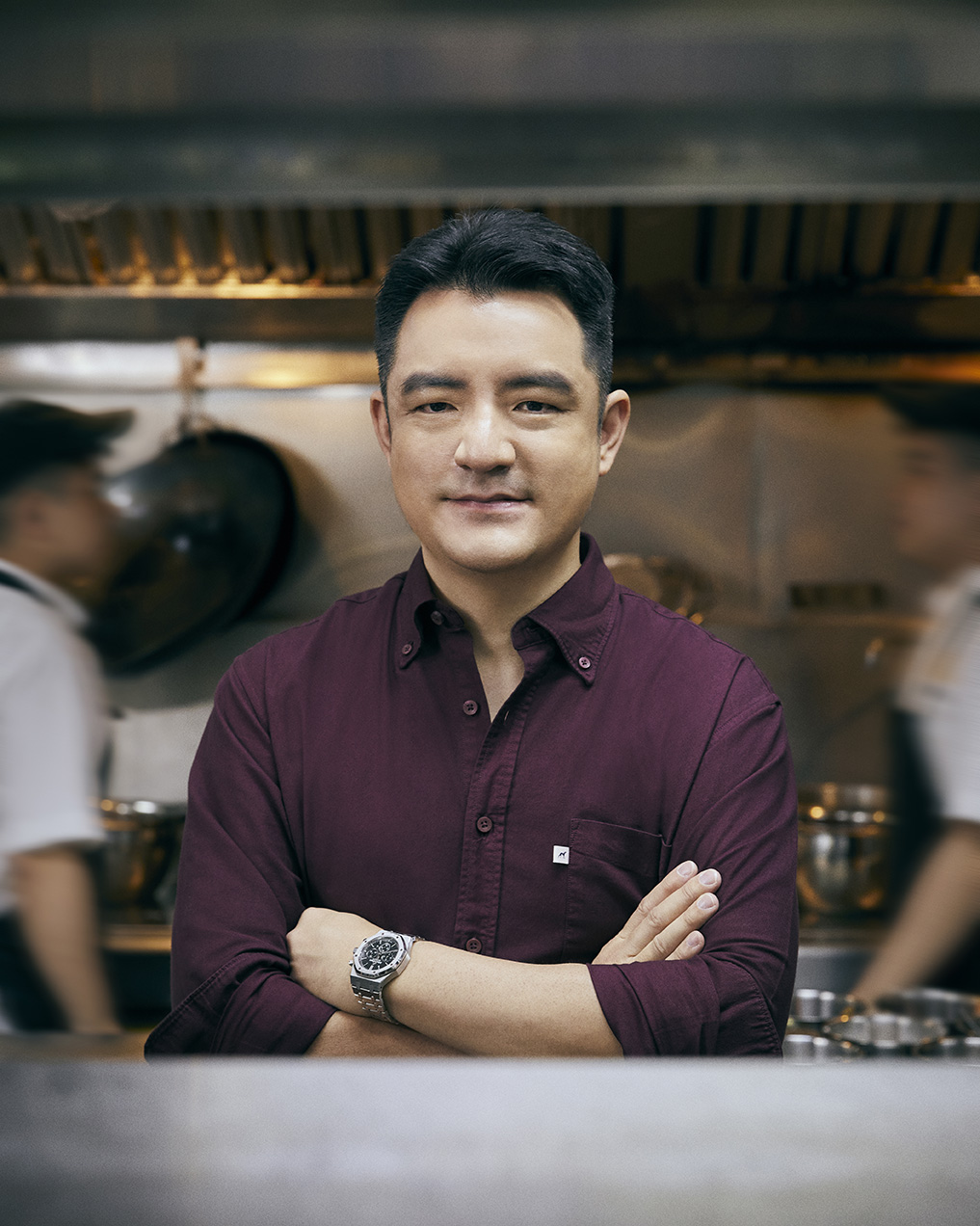
“For the past 20 years that we’ve had Esquire Kitchen, I have been involved on and off too, in the dealing with the malls and renovation of the restaurants, less on operations,” he divulges.
The opportunity to acquire the Grand Imperial Group came up in the height of Covid-19 when the 15-year-old high-end restaurant chain was suffering relentlessly from the prolonged nationwide Movement Control Order. By August 2021, Datuk Tony had bought over the group.
“I took a short break after MCO on the development side because we had finished building all that we had to build,” Joshua regales. “We decided to focus on the restaurants before doing anymore launches on the property side. This gave me more time to focus.”
Innovating amidst tradition
Drawing from his experience in building and growing Esquire Kitchen, Joshua went all in with Grand Imperial and its fleet of high-end banquet style restaurants. Fortune favoured his bravery as the group recorded a surge in turnover in 2022 at 30% above the previous year. In the following year 2023, the numbers breached 50% on good months, while the average hovered around 35%.
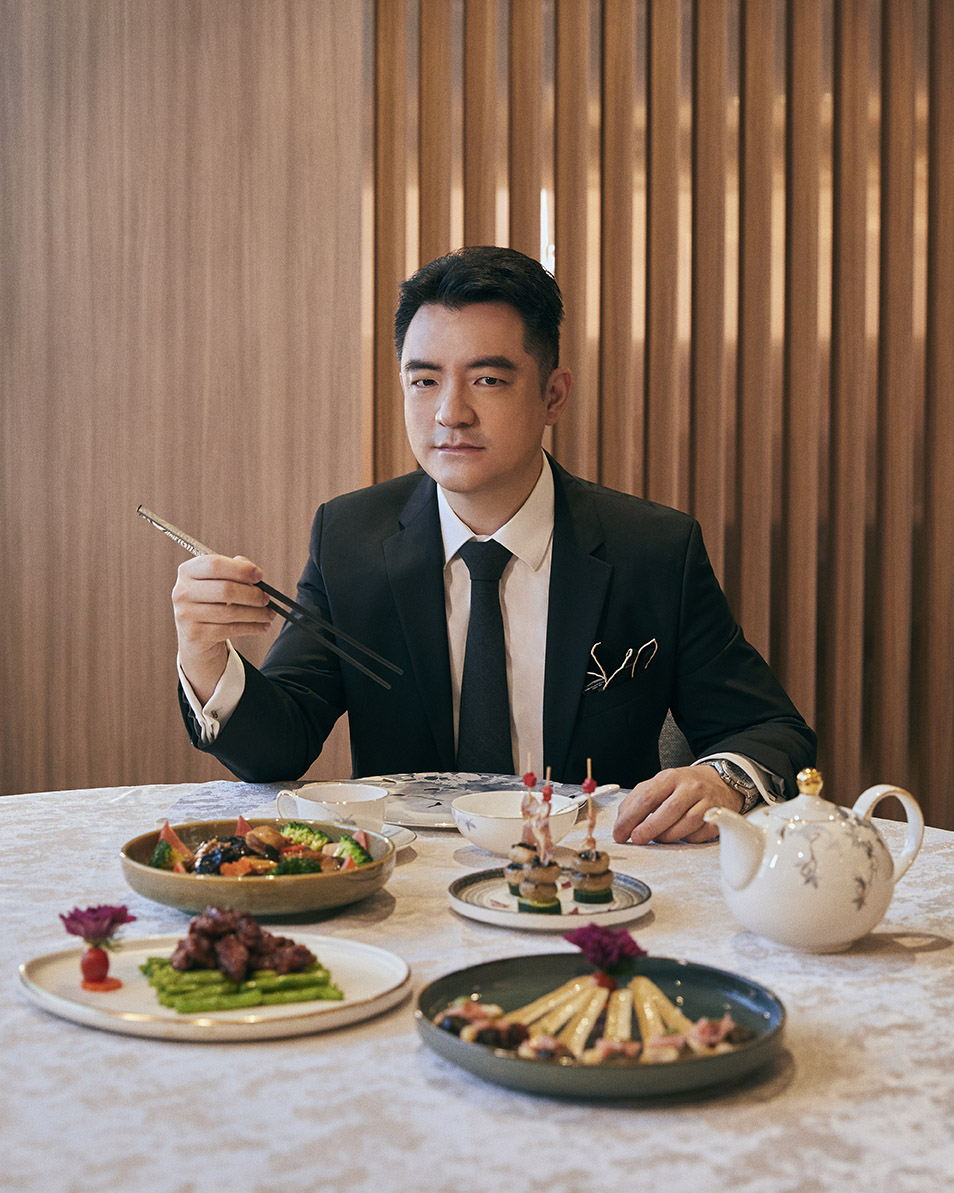
It opened new outlets from Setia City Mall all the way to Genting Highlands and introduced novelties to refresh the perception of Chinese banquet dining. The group now offers dim sum, barbecue, steamboat and more. Its latest addition across all outlets is live seafood in tanks, from which diners can select their seafood fresh and have them prepared ala minute.
“A lot of where we draw inspiration from comes from Hong Kong,” Joshua lets on. “A lot of ingredients, dishes, cooking styles are from what we see overseas, that we also mix up with what we have in hand locally. That allows more creativity.”
He adds, “It’s always a challenge because you have to have the traditional elements but you also have to switch it up and introduce new things. Sometimes you also have to go the way the market wants to go.”
A big uptick has been the demand for more private rooms and spaces. “We see that demand for our rooms that can allow this whole connection to take place in a more private setting, a separate area. That is something that we are actively working on – to increase the number of our private rooms, to increase the comfort of these private spaces,” he shares.
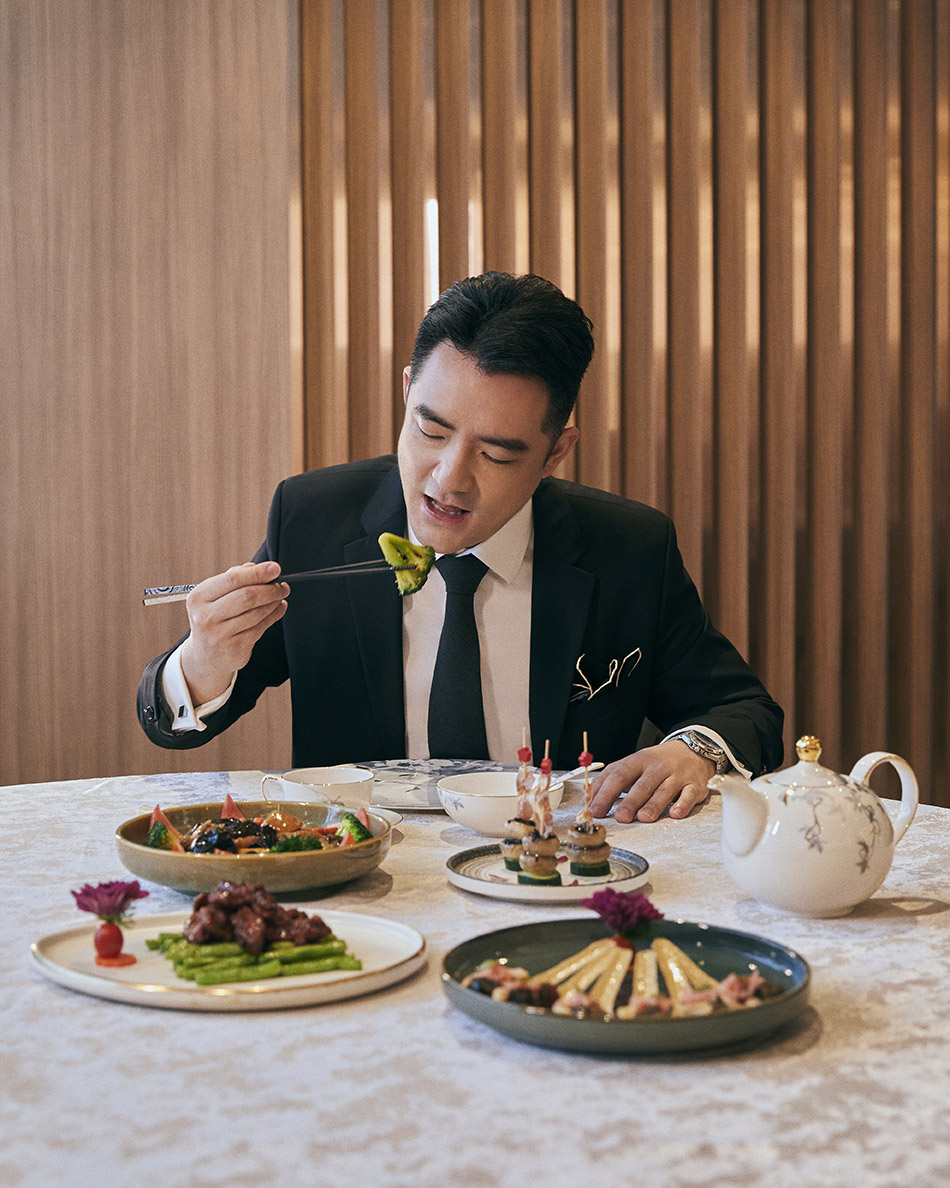
“We seek to provide the perfect place and setting where people can just enjoy being with each other.”
As diners get more discerning, so too does the group. “We are seeing a strong trend in people looking for more elevated experiences. They’re looking for something more interesting and different. We’re starting to look into that and see how we can push in that direction while maintaining the consistency and flavours that we are known for.”
It is eyeing subtle innovation and modernization while staying true to the essence of Chinese dining, where atmosphere is everything, sometimes perhaps even over the food. “The food definitely has to be something that everyone can bond over, but the service has to allow people to focus on each other instead of what’s in front of them,” Joshua opines. “It has to be seamless, you shouldn’t be left wanting or distracted. That will take away from the experience. That is our focus when we say we’re perfecting the dining experience.”
“We seek to provide the perfect place and setting where people can just enjoy being with each other. That’s the key thing,” he adds.
Feasting past, present and future
In the world of food, Chinese cuisine is perhaps one of the toughest recipe to perfect, being so entrenched in culture, heritage and legacy. Even harder is to bring it to the modern plates of the world where it will stay relevant and exciting without losing its essence.
“From a consumer point of view, the general population has become more discerning. It’s being seen across all sorts of cuisine. In the recent few years, everyone has become a foodie and a critic. Netflix is showing all these shows with chefs showing their trade. Food is becoming more a passion item over a necessity,” Joshua duly observes.
As consumers pull back the curtains on food and its provision, it is also the food producer’s duty to be part of the conversation on education.
“Chinese cuisine has always had an element of theatre to it – there’s always been drama,” he says. “Luxury ingredients add to the drama. Of course, there are things that go into dishes that in today’s modern times can be a bit questionable, and possibly not so sustainable or ethical. That happens in every cuisine. There’s this conflict here now between tradition and this modern movement. Part of our role is to preserve this tradition in the right way.”
“Chinese cuisine has always had an element of theatre to it – there’s always been drama.”
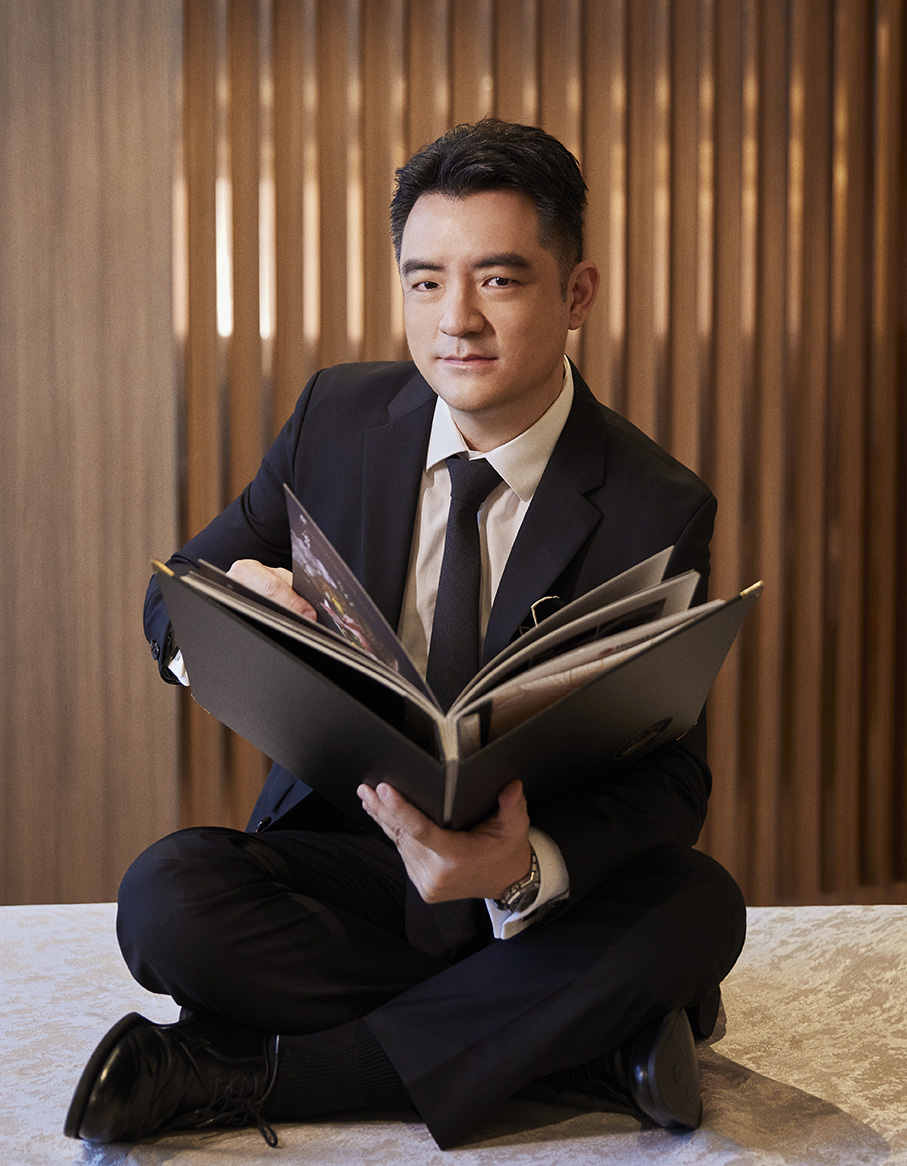
“The food definitely has to be something that everyone can bond over, but the service has to allow people to focus on each other instead of what’s in front of them.”
The group has started looking into where it sources its products and produce, all in the big picture to increase sustainability and reduce ethical grey area.
“We have to start finding more ways to source responsibly and educate customers on this topic so together we can move forward in the future while keeping one foot in the responsible area.
This starts with us – we have to be more careful with where we source our stuff,” Joshua offers.
For now, in the days leading up to the Lunar New Year of the Dragon, Joshua looks forward to the very thing that first drew him to the food industry, more specifically, the Chinese food industry.
“I’m looking forward to seeing a lot of people having really good food and enjoying themselves,” he shares. “It’s a very busy period for us – most of the restaurants are fully booked. It’s hectic, it’s crazy, it’s a lot of people running around and putting things together. At the end of the day, I just want to see people happy and satisfied. It’s for people to walk home with their hearts and stomachs full.”
He wouldn’t trade this period of busyness for anything in the world.
In his own words, “In Chinese banquets, the connecting factor is the fact that everyone is eating the same thing. They’re tasting the same thing. The connection is shared not just through what they’re talking about or interactions, it’s connected by your tastebuds, your smells, your sight of the food. It’s multi-sensory – everyone is really sharing the same experience. Everyone has their own plate and flavour profiles. They will coin their own opinions of the same dish. So to be able to share this and to walk away with different takes, it’s something that connects people too.”
“In Chinese banquets, the connecting factor is the fact that everyone is eating the same thing.”
Photographer: Tommi Chu
Art Direction: Anson Siau
Assisted by: Mon Kai-Siong
Make-up and Hair: Jacquelyn Tan
Location: Grand Imperial Restaurant, Setia City Mall, Shah Alam, Selangor


